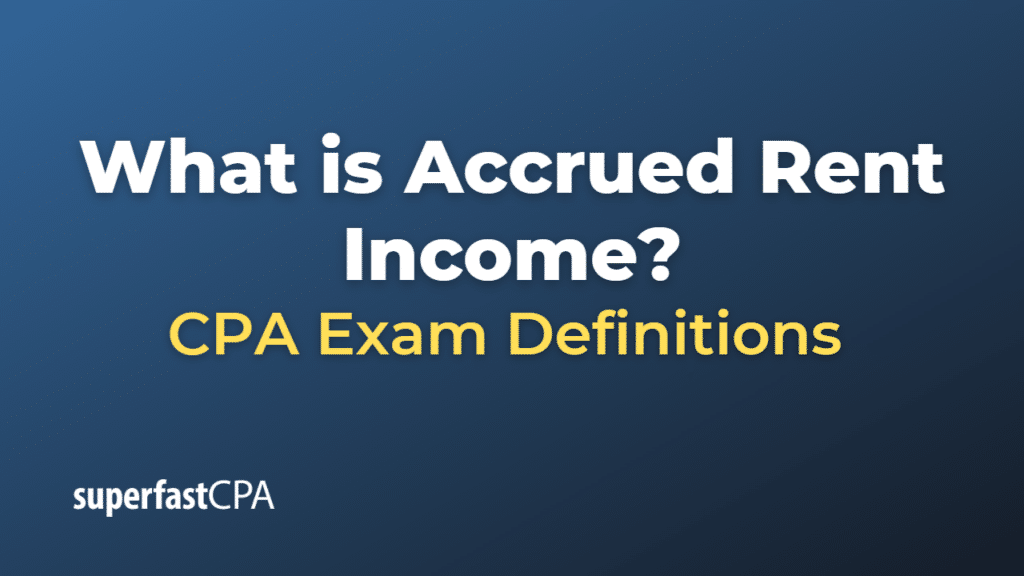Accrued Rent Income
Accrued rent income refers to rental income that has been earned by a property owner but has not yet been received. This concept applies to businesses or individuals who rent out property, such as office spaces, residential units, or other types of real estate. In the context of accrual accounting, rent income is recognized in the period in which it is earned, regardless of when it is actually received. This method aligns with the accrual basis of accounting and the revenue recognition principle, which aims to recognize income in the period it is earned.
Accrued rent income is recorded on the property owner’s balance sheet as a current asset, typically under the “Accrued Rent Receivable” or a similar account. Once the rent is received, the accrued rent receivable is reduced, and the cash account is credited.
To record accrued rent income, a property owner would record a journal entry debiting the relevant asset account (e.g., “Accrued Rent Receivable”) and crediting the corresponding income account (e.g., “Rental Income”).
For example, suppose a property owner rents out an office space with a monthly rent of $3,000, payable on the 10th of the following month. The property owner’s accounting period ends on December 31st, but the rent payment for December is due on January 10th. To recognize the rental income earned in December, the property owner would record the following journal entry on December 31st:
Debit: Accrued Rent Receivable – $3,000 Credit: Rental Income – $3,000
This entry ensures that the property owner recognizes the rental income in the appropriate accounting period. When the rent is received on January 10th, the property owner would record another journal entry to reverse the accrued rent receivable:
Debit: Cash – $3,000 Credit: Accrued Rent Receivable – $3,000
By recording the accrued rent income, the property owner ensures that their financial statements accurately reflect their financial performance for the accounting period, providing a clearer picture of their financial health for themselves, investors, and other stakeholders.
Example of Accrued Rent Income
Let’s consider a hypothetical example to illustrate the concept of accrued rent income.
Imagine a property owner, John, who rents out an office space to a company called XYZ Corp. The monthly rent for the office space is $5,000, payable on the 5th of the following month. John follows the accrual basis of accounting and has an accounting period that ends on December 31st.
During the month of December, XYZ Corp occupies the office space as usual but has not yet paid the rent for December. The rent payment for December is due on January 5th. To account for the accrued rent income, John needs to recognize the rent income earned during the December accounting period, even though the payment has not yet been received. John would record the following journal entry on December 31st:
Debit: Accrued Rent Receivable – $5,000 Credit: Rental Income – $5,000
This journal entry recognizes the rent income earned for the accounting period and records the accrued rent receivable as an asset on the balance sheet. Once John receives the rent payment from XYZ Corp on January 5th, he will reverse the accrued rent receivable and increase the cash account with the following journal entry:
Debit: Cash – $5,000 Credit: Accrued Rent Receivable – $5,000
By recording the accrued rent income, John ensures that his financial statements accurately reflect his financial performance and rent earned for the accounting period, providing a clearer picture of his financial health for himself, investors, and other stakeholders.













